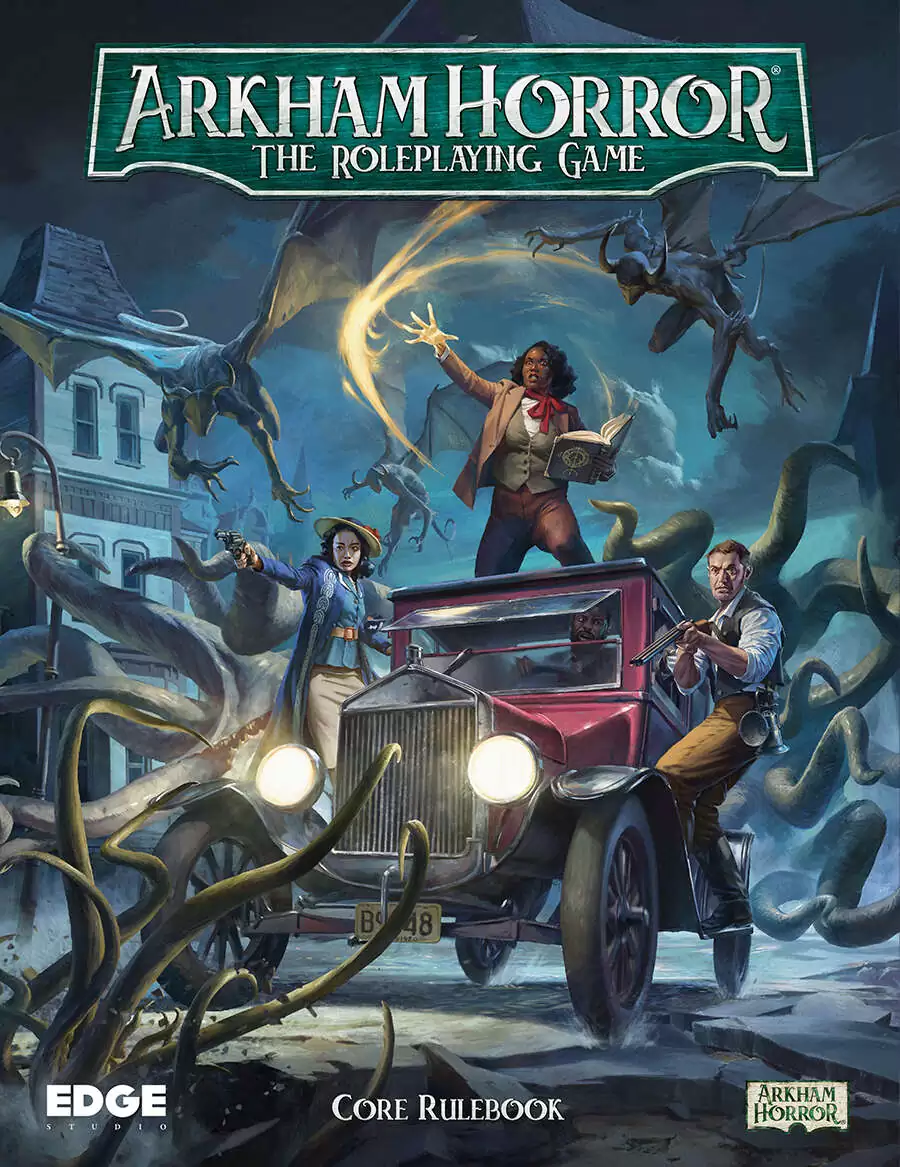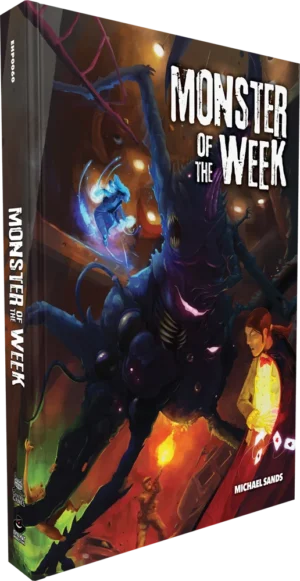Arkham Horror Horror; Cosmic Horror; Dark; Investigation; Team-Based; Resource Management
This report provides a detailed overview of the Arkham Horror tabletop roleplaying game (TTRPG), focusing on its theme, mechanics, unique features, target audience, and player experience. The game transports players to the 1920s, immersing them in a world of cosmic horror, investigation, and team-based resource management. Its accessible design and compelling narrative make it an attractive entry point for both new and experienced roleplayers.
Theme and Setting
Arkham Horror is steeped in the lore of H.P. Lovecraft's Cthulhu Mythos. The game is set primarily in the 1920s in and around the fictional town of Arkham, Massachusetts. Players take on the roles of investigators delving into mysteries involving ancient evils, otherworldly entities, and the encroaching influence of cosmic horrors. The atmosphere is one of dread, mystery, and impending doom, where the characters are often outmatched by the forces they confront. The setting is a key element, providing a rich backdrop for investigation and a pervasive sense of unease.
Core Mechanics and Rules
The Arkham Horror TTRPG utilizes the Dynamic Pool System (DPS). Each character has stats represented by a number, indicating the dice pool they can utilize. To perform a check, players roll a die from their pool and compare the result to their stat; meeting or exceeding the stat indicates success.
The game is divided into narrative and structured scenes, with varying costs in dice for actions. As investigators take damage or accumulate horror, their available dice pool shrinks, impacting their effectiveness. Successfully managing the pool, damage, and horror becomes critical to character survival and success. The 'Hungering Abyss' starter set features a learn-as-you-play adventure, teaching the core mechanics incrementally.
What Makes It Unique
Several aspects set Arkham Horror apart from other TTRPGs. The Dynamic Pool System offers a distinct way to manage resources and track character health. The game emphasizes cooperative gameplay, as players must work together to solve mysteries and combat threats. The focus on investigation, puzzle-solving, and storytelling creates a unique blend of roleplaying and board game elements, particularly evident in the inclusion of physical puzzles and handouts. Unlike some cosmic horror games, Arkham Horror offers a more 'pulpy' experience where investigators can fight back against the mythos, though at potentially great cost.
Lita Chantler appears as a key NPC in the 'Hungering Abyss' adventure.
Target Audience and Player Experience
The Arkham Horror TTRPG aims for accessibility, targeting both newcomers to tabletop roleplaying and existing fans of the Arkham Horror universe. The Starter Set, Hungering Abyss, is designed as an entry point requiring no prior knowledge of RPGs or the Arkham Horror setting. Experienced players can also appreciate the fresh perspective and unique mechanics the game offers. The experience is geared toward collaborative storytelling, investigation, and a constant sense of tension as players manage their resources and confront the horrors of the Mythos. Its design emphasizes narrative immersion through intuitive rules and tactile components, creating an engaging and memorable player experience. Play sessions in the starter set are designed to be shorter, divided into scenes that can be completed in 1-2 hours.



